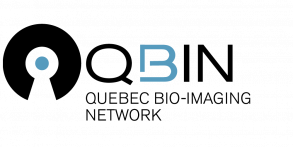SciComm Seminars 2021

We are pleased to share with you the recordings of the SciComm Seminar Series, which took place weekly from March to June 2021. The seminars were held virtually via Zoom and registration was free and open to anyone (the content was aimed at students and trainees in the life sciences).
The seminars and interactive workshops cover topics such as:
- Accessibility and inclusivity in SciComm
- Open Science and SciComm
- Writing for the public and freelance science journalism
- SciComm through podcasting
- Data visualization – principles and tools
- Building trust in science
- SciComm in French: reaching the local community
- Alternative careers in SciComm
- How to get involved as a trainee
Email Estrid Jakobsen (estrid.jakobsen@mcgill.ca) if you have any questions about the SciComm seminars or if you would like to propose a topic for a future seminar.
Joseph Fridman, Senior Communication Specialist at Ginko Bioworks, talks about his experience in science communication, including podcasting and journalism.
Eisha Ahmed, marketing and brand strategist at Dispersa, talks about strategies and principles of effective data visualization.
Alexandra Gellé, Director of Pint of Science Canada and part of the leadership team of ComSciCon-CAN and QC talks about how to get involved in SciComm as a trainee.
Nikola Stikov talks about the history and future of academic publishing and the need for transparency, and Agah Karakuzu gives a live demo of NeuroLibre, a preprint server that goes beyond the PDF to complement research articles.
Agah Karakuzu talks about data visualization for modern academic publishing and gives a workshop showcasing tools for creating interactive figures and dashboards.
Joe Schwarcz, director of the McGill Office for Science and Society talks about how we can use science communication to build trust in science.
Freelance science journalist, Diana Kwon, talks about her journey from academia to the journalism and give a brief workshop on the basics of how to construct a science story for the public in an accurate and accessible way.

Susan Molnar, career counsellor for graduate students at McGill University, gave advice on how to access the hidden job market and land a job in science communications. The seminar was not recorded, but you can find her presentation slides here.
Inclusion consultant, Falisha Karpati, covers the basics of three aspects of inclusive and accessible science communication.
